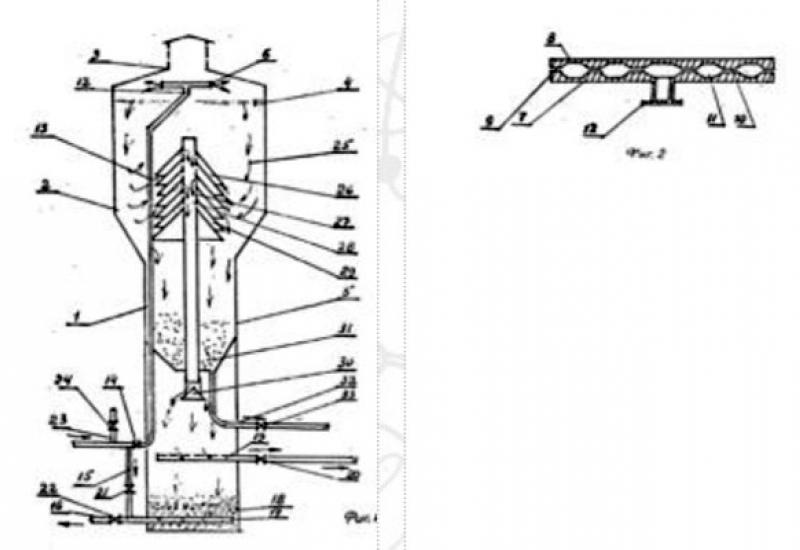His life was fruitful, interesting and at the same time extremely stressful. He was born in Dnipridzerzhinsk in a large working class family. Childhood and adolescence occurred in the turbulent war and postwar years. Father died early, and graduating the school, 15-year-old Sasha was working on Dneprodzerzhinsky chemical plant where before his father was working, and later - the elder brothers. But the desire for knowledge prompts to continue his education at evening school, and then at the correspondence department of the Dnepropetrovsk Institute of Chemical Technology, which he successfully completes and continues to work on "his" factory, but as the chemical engineer. Over the years, he acquired considerable experience as the practice-production worker and active experimenter and more inclined to research activities.
In May 1972, Oleksandr Shutko started to work in Kyiv Polytechnic Institute at the Department of Physical and Colloid Chemistry, where he began working as head of educational laboratory, and a year later defended his thesis and received a degree in chemical sciences. Later he significantly expanded the theme of the master's thesis on the use of basic aluminum chloride in various sectors of the economy, at the same time spreading the range of scientific and practical interests, organized a group of young scientists, which eventually turned into industrial research laboratory for complex processing of raw materials. Under his leadership there begun its activity the school for young environmentalists. Then he defended his doctoral thesis. Oleksandr Petrovych was often invited into the enterprise and branch institutes of the chemical industry for a variety of technical, scientific and practical problems.
April 26, 1986 an accident occurred at the Chornobyl nuclear power plant. The Chornobyl disaster has riveted the attention of all humanity. Vast areas in Ukraine, Belarus, Russia, were contaminated with radioactive substances. The problem of catastrophic spread of radioactive contamination with the transport, used to evacute people from the disaster area, was particular acure. There were gathered thousands of cubic meters of contaminated water at numerous wash centers. Critical situation required extraordinary solutions. The most effective solution to the problem has been recognized by the proposal of a group of scientists Faculty of Chemical Technology "KPI", headed by O.P. Shutko. They proposed treatment technology of contaminated water, which did not require the creation of stationary treatment facilities. During the month of May the group developed the formulation of effective reagents and mobile unit designed for practical work in the field. Decontamination of water was carried out directly in the storage tanks. 1,5-2 hours after this treatment, radioactive materials sank to the bottom and supernatant water that meets the standards of MPC, was evacuated to the area or used for watering roads.
June 6, 1986 at the headquarters of Civil Defence Departmen of Kyiv it was created the team for decontamination of water, consisting of experts KPI - authors design, drivers, instrument operators, compressors (11 people). A SES of Kyiv provided the Quality control of the purified water. O.P. Shutko was appointed the head of this team.
For 1986 and the end of 1987 the created division operated in the rapid response and planned watch at decontamination stations of Kyiv region, a 30-kilometer zone, in Belarus and points wash equipment South Western Railway. During its work it has been deactivated about 50 thousands m3 contaminated waters. Implementation of design and selfless work of specialists KPI allowed to save the state more than 18 million rubles (in 1986 prices.). In addition, there was no longer a need for stationary treatment facilities, which, by the way, some time should become a radioactive burial grounds. The construction of such facilities has been stopped and inhibited. In addition to this economy of material and financial resources, it has been preserved (and this is - most importantly!) the health and lives of hundreds of people who were sent into the active zone for the construction, installation and maintenance of water treatment facilities.
Upon the decision of the Government Commission the proposed technology and progressive experience was used in Kyiv in the 30-kilometer zone of Chornobyl, and mobile installations were used in Belarus and have been introduced in units of ES URSR.
The work of this department was written about in the national press in the newspapers "Pravda" on August 15, 1986 and "Pravda of Ukraine" dated December 17, 1986. At 1987 the development of scientists has been awarded a gold, silver and bronze medals ENEA USSR, and in 1989. - Nominated for the State Prize of Ukraine in the field of science and technology.
Proven scientific results of the proposed technology and many other practical developments for disposal of liquid wastes formed the basis of the thesis O.P. Shutko for the degree of doctor of technical sciences, specialty "Environmental Protection", which he defended at the Moscow Institute of Chemical Technology of Mendeleev.
In 1988, at the Department of Technology Pulp and Paper industry O.P. Shutko organized a new profession (for the first time in Ukraine) on industrial ecology and environmental protection. In 1993, the first issue of environmental engineers was taken place. At the department it was organized training of graduate students at the specified profile and was created a specialized council for doctoral theses. His disciples and followers in the department successfully develop today all undertakings Oleksandr Petrovych.
On the eve of the 10th anniversary of the Chornobyl accident, April 6, 1996 O.P. Shutko died - in the prime of life and creative ideas. He was inexhaustible optimist, a dreamer, a visionary, next to which even in the most difficult times, it was easier to live. He was extremely joyous, for whom life does not end with the day of death. Eternal memory and glory.

